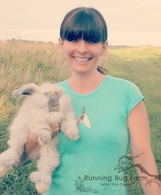|
Best Before: The Evolution And Future Of Processed Food by Nicola Temple Normally I find books of this type engaging. I typically re-read memorable passages to myself as well as aloud to others in hopes of engaging discussion. This was not one such book. The premise behind the book could have been more engaging if it was perhaps written by someone more skilled at writing in a more conversational way that kept the reader interested. The author does try to add a bit of wit & humor to make the story more interesting but unlike other authors, her efforts fall flat. Best Before is more akin to reading a text book in class with a somewhat dorky teacher who occasionally tries to make a joke in order to keep the class awake. It was also confusing as the reader to not fully understand where the author stood regarding food processing. It seemed that the author didn't know either. The author states she is simply providing information so that we can make more informed decisions. This is all well & good, but at times it seems she is either leaning towards processing & yet at other times against it. This created an odd vibe with the book. As the reader it was hard to stand with or against the author. When reading a book of this nature, normally if it is something I feel passionately about & it seems the author & I are in agreement, I feel like I have gained a new ally. Naturally if the topic is something I feel negatively about & the author feels positively, I feel the author is against what I feel is just & right, so most certainly not an ally. So while reading this I may nod my head, but then back up & shake muttering something like, "Wait, what?" It interrupts the flow. One such example is nano-particles. The author tries to provide an unbiased opinion, discussing what she feels are the pros & cons of nano technology in food & then clearly states that this is something she is excited about; the potential benefits in food if it is used properly. My problem with this is many. One being how it is already proven that nano particles are wrecking havoc in the environment. She even states that scientists don't yet know what happens in our gut, our amazing microbiome when nano particles are introduced into our bodies. Sometimes it's best not to tinker too much with nature. Seeing how lax labeling laws are, the last thing I want to find out is that I'm unknowingly consuming lab created nano sized whatevers in my food. She also merrily skips over irradiation & seems fine with it as well because it helps keep the consumer safe from potentially deadly pathogens. Good practices make irradiation unnecessary. Irradiation means manufactures can cut corners & speed up production because they don't have to worry about contamination. Feces in the meat? No worries, irradiation is here! The food manufacturing industry's over-use of irradiation is nearly in line with the over use of antibiotics in livestock production. Why let animals live outdoors in a more costly & slower environment when antibiotics can do double duty, increasing the size of the animal faster while allowing you to cram them into filthy inhumane conditions that they would never survive without antibiotics? What about plastics? She discusses how our foods can have a plastic film on them, without our knowledge. This film gets eaten by us. It's main purpose is to keep the food fresh. Sorry, but isn't eating plastic something we want to avoid? As a eco farmer, I find it hard to understand how someone with a homesteading background of wholesome farm grown foods, is so at ease with what is going on in the food industry. To be fair she doesn't speak positively of all the various processing methods that manufactures use, but she isn't exactly coming across as against them either. I am not even sure where she stands regarding genetically modified foods. Some of the stories in this book start out interesting, such as the history of the baby carrot, but even that gets bogged down with too many details for the average reader, once again creating a snooze fest. In other areas of the book, she makes timeline claims but then later says scientists don't agree, but she's picking said timeline because it helps the flow of the book. Folks, this is supposed to be non-fiction. There are many other books available that are much more engaging regarding the food industry such as Salt Sugar Fat, Real Food/Fake Food, & Nourishing Traditions to get you started. This is not necessarily a bad book, the potential is there & it contains educational information (albeit sometimes questionable), but why get it here when you can get it from so many other much more enjoyable books? You may also like: Book Corner Quick Links
Links to the books I've read & reviewed for your convenience!
0 Comments
Your comment will be posted after it is approved.
Leave a Reply. |
Affiliate DisclosureAs an Amazon Associate, I earn from qualifying purchases.
This page may contain Amazon affiliate links. If you choose to make a purchase after clicking a Amazon link, I may receive a commission from Amazon at no additional cost to you. As always, Thank you so much for your support. I couldn't do what I do without you! Categories
All
Archives
April 2024
 Hi there! My name is Jen. I'm a "tree hugging dirt worshiper" who has been organically farming for nearly two decades. It never ceases to amaze me at how much I've learned & how much I am still learning. I have studied natural health, nutrition, & herbs for nearly three decades. Our health & the natural world around us are connected in ways we don't often realize. How we treat the land & animals directly affects us in both body & mind. My goal is to provide others with truly natural humane goods from my own little piece of paradise, & to freely pass along whatever knowledge I pick up along the way. I am grateful every day to be able to have such a worthwhile & fulfilling job surrounded by the beauty & unpredictability of Mother Nature. Hi there! My name is Jen. I'm a "tree hugging dirt worshiper" who has been organically farming for nearly two decades. It never ceases to amaze me at how much I've learned & how much I am still learning. I have studied natural health, nutrition, & herbs for nearly three decades. Our health & the natural world around us are connected in ways we don't often realize. How we treat the land & animals directly affects us in both body & mind. My goal is to provide others with truly natural humane goods from my own little piece of paradise, & to freely pass along whatever knowledge I pick up along the way. I am grateful every day to be able to have such a worthwhile & fulfilling job surrounded by the beauty & unpredictability of Mother Nature.
Copyright
You're welcome to link to Running Bug Farm or use a single image with a brief description to link back to any post. Republishing posts in their entirety is prohibited. |



 RSS Feed
RSS Feed
